 | Henry Nathan Wheeler - Logarithms - 1882 - 60 pages
...Iog10-? Ans. 0.1761. m Given: Iogw123 = 2.0899 ; what is Iog100.123?_ Ans. 2.0899-3 = 1.0899. § 8. In any system the logarithm of any power of a number is equal to the logarithm of the number multiplied by the exponent of the power. Proof: If I = 6х, then is log6Z = ж, lm = (b*)"1... | |
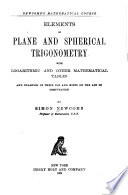 | Simon Newcomb - Trigonometry - 1882 - 372 pages
...of a quotient is found by subtracting the logarithm of the divisor from that of the dividend. III. The logarithm of any power of a number is equal to the logarithm of the number multiplied by the exponent of the power. IV. The logarithm of the root of a number is equal... | |
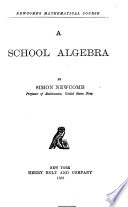 | Simon Newcomb - Algebra - 1882 - 302 pages
...— = 10*-*= -. Hence, by definition, A — k = los—, 9 or log p — log q = log—. THEOREM IX. The logarithm of any power of a number is equal to the logarithm of the number multiplied by the exponent of the power. • Proof. Let h = log p, and let n be the exponent.... | |
 | James Hamblin Smith - 1883 - 466 pages
...1-7191323 their difference = -8508148 which is the logarithm of 7-092752, the quotient required. 457. The logarithm of any power of a number is equal to the product of the logarithm of the numbcr and the index denoting the power. Let m=a'. Then m'=o"; .'.... | |
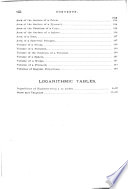 | Charles Davies, Adrien Marie Legendre - Geometry - 1885 - 538 pages
...(4) to the power denoted by p, we have, 10*" = mfwhence, by the definition, xp = logm". (8.) That is, the logarithm of any power of a number is equal to the logarithm of the number multiplied by the exponent of the power. 8. Extracting the root, indicated by r, of both... | |
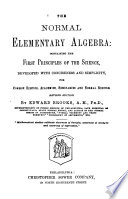 | Edward Brooks - Algebra - 1888 - 344 pages
...B*=N. Dividing, S^~jn = MiN. Hence, log ( M •*• N) = m — n. Or log(M + N)=-logAT-logN. PRIN. 5. The logarithm of any power of a number is equal to the logarithm of the number multiplied by the exponent of the power. For, let 7W=logJI/. Then, B» = M. Eaising to nth... | |
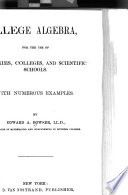 | Edward Albert Bowser - Algebra - 1888 - 868 pages
...— = x — y = log m — log n. n Thus, log *£ = log 42 — log 5 = log 2 + Iog3 + log? - Iog5. (6) The logarithm of any power of a number is equal to the logarithm of the number multiplied by the exponent of the power. For let x = log m ; then m = a*. Therefore m" =... | |
 | William Findlay Shunk - Railroad engineering - 1890 - 360 pages
...logarithm of a quotient is equal to the logarithm of the dividend diminished by that of the divisor. The logarithm of any power of a number is equal to the logarithm of the number multiplied by the exponent of the power. The logarithm of any root of a number is equal... | |
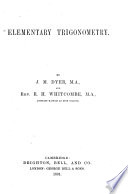 | John Maximilian Dyer - Plane trigonometry - 1891 - 306 pages
...should have fit n log. — — = log. mn - log. pq = log. m + log. n - log. p - log. q. 107. Theorem 3. The logarithm of any power of a number is equal to the logarithm of the number multiplied by the index of the power. Let m be any number, a the base ; we have to show... | |
 | William Joseph Hussey - Logarithms - 1891 - 178 pages
...logarithm of a quotient is equal to the logarithm of the dividend, minus tJte logarithm of the divisor. The logarithm of any power of a number is equal to the logarithm of the number multiplied by the index of the power. The logari(hm of any root of a number is equal to... | |
| |